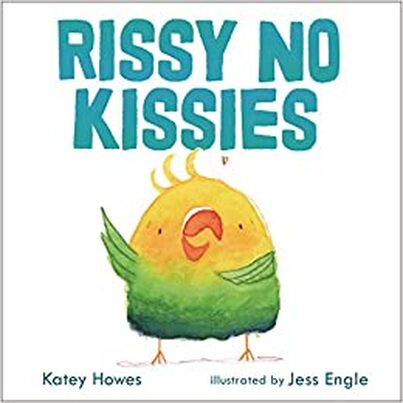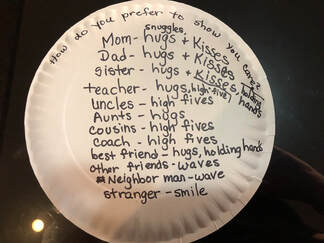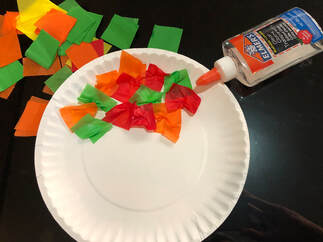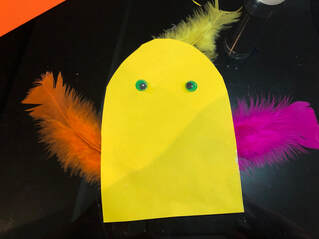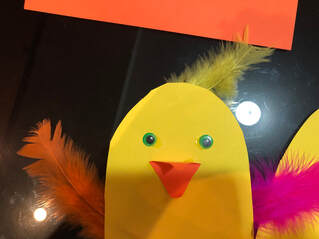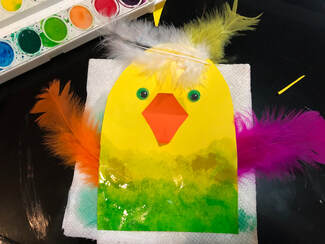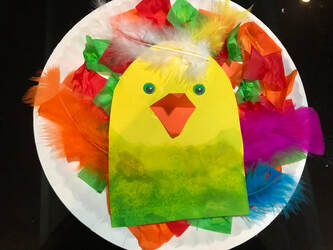A Book Review of Rissy No Kissies
Rissy No Kissies is an important book for many reasons. It addresses body autonomy, consent, boundaries, sexual abuse prevention and sensory issues. That is a lot of value to pack into a picture book. So, I am definitely a fan! The author, Katey Howes, did a great job presenting these concepts in an engaging way that young children can understand. The colorful watercolor illustrations by Jess Engle are adorable and help to lighten up this heavy subject. This book is as important for adult readers as it is for kids, as we are responsible for allowing kids to have autonomy over their bodies. Even if Uncle Joe doesn't like it, we need to give the message to our kids that they have the right to say "No" to unwanted physical touching of any kind. Kids need to have the power to make decisions about their bodies and practice this skill to build confidence for high school, college and later years when consent becomes an even bigger issue. The reason the topic of body autonomy and consent are so important to kids is seen in the statistics. According to the nation's largest anti-sexual violence organization (RAINN), in the United States: *1 in 9 girls and 1 in 53 boys under 18 years of age experience sexual abuse or assault at the hands of an adult. *Females ages 16 - 19 are four times more likely to be victims of rape, attempted rape or sexual assault. *Every 68 seconds an American is sexually assaulted. *Child sexual abuse perpetrators are: *59% acquaintances *34% family members *7% strangers The effects of sexual abuse and assault severely affect the victim's mental health, whether the victim is a child or an adult. Therefore, it is imperative that we do a better job at prevention. Learning concepts like these at a young age, will go a long way to prevention. it is crucial for adults to respect the preferences of kids when it comes to touch. Unfortunately, all adults are not going to do this, so this is when the caretaker needs to step in and validate the child's preferences. Saying "No" to an unwanted hug now can translate into having the confidence to say "No" later to an unwanted sexual encounter. It is especially important to practice these skills when there is a power deference. When someone has power over you, like an adult to a child, it is much more difficult to say "No." Kids have been taught repeatedly to listen to adults, respect their elders, etc. Unfortunately there are adults that take advantage of this power deference and this is a huge factor in the sexual abuse of children. This is also true for sexual assault in adults. The perpetrator often has power over the victim, whether it be due to age, role (parent, teacher, priest, boss, coach, etc.), physical size or social status. We need to practice saying "No" to those who have power over us when it comes to our bodies. The more practice kids get, the easier it will become later. It is the child's choice how to show love and caring to others and there are many options. Rissy is more comfortable with the options of giving feather fives, nuzzles, singing songs, holding wings, giving cards, hugs, handshakes, and waves. Also this is not universal. She may be comfortable hugging her parents, but not comfortable hugging Uncle Joe. She may prefer to give teachers and peers high fives, rather than snuggle with them. Comfort level depends on the relationship. Children have good instincts on who is not safe and as adults, we need to help children get to the point of trusting their own instincts. Another huge factor in learning about consent as a young child is learning the concept of obtaining permission before touching another person. Learning to respect another's body and not feeling entitled to do what you want to someone else without their permission is crucial. Whether it's a hug from Uncle Joe to a 5 year old, or a sexual encounter with a college classmate. If we learn from a young age that all of these things require permission, this will become the norm and sexual assaults will decrease. Asking a peer if they can give them a hug before doing it, and learning to respect their response, can translate to asking a peer later for a sexual encounter and respecting their "No." Additionally, sensory issues are very prevalent and to some people certain kinds of physical touch are uncomfortable. It is important that this is normalized and children or adults with sensory issues aren't made to feel "weird" for refusing certain kinds of touch. The message in this book is actually quite simple. Let's just respect one another and teach this from a young age. At the end of the book, the author has added a helpful note for kids and caregivers. If you're interested in more information about sexual abuse and assault, including a hot line number, you can learn more here. If you'd like to purchase this book and check out others by this author, click here. I have included an activity below to further explore the concepts in this book with kids. An Activity Idea for Rissy No Kissies The most important activity is to practice and model with kids the concept of asking others before touching them. Equally important is to have them practice using their voice to say if a certain touch is uncomfortable to them. Role playing is a helpful activity to practice these skills. Then, have fun with the following craft activity! Materials Needed: -white paper plate -black marker -tissue paper cut into squares and scrunched -glue -yellow construction paper or cardstock -orange construction paper -watercolor paints or crayons -paint brush and cup of water -craft feathers -googly eyes (optional)
2 Comments
|
Follow me on Twitter, Pinterest and LinkedIn
Categories
All
|
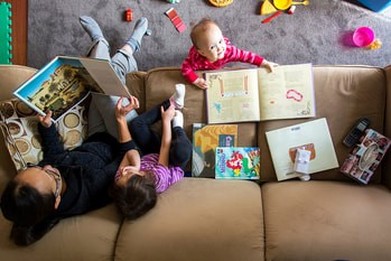
 RSS Feed
RSS Feed
